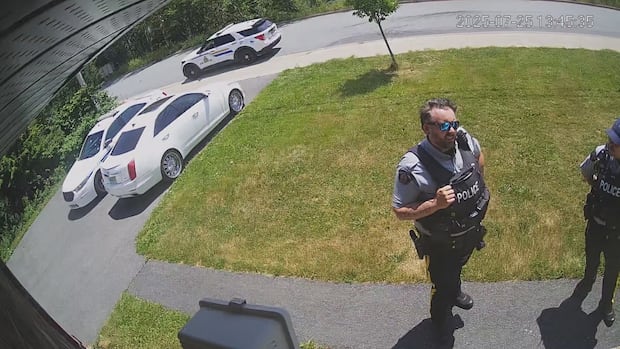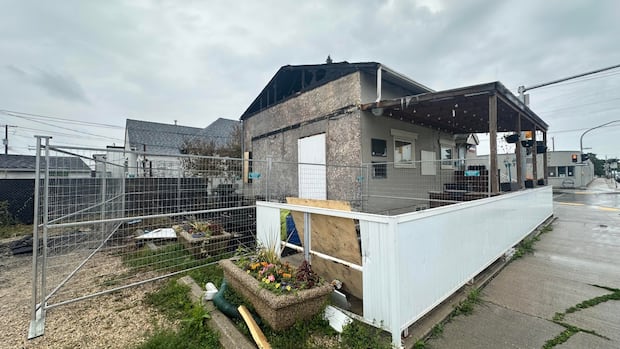It’s big, bold and expensive: just the kind of project that would appear to meet the moment for Prime Minister Mark Carney’s call for nation-building projects from Canada’s premiers.
Late last month, the Yukon and B.C governments signed a memorandum pledging to work together to study the idea of a 765-kilometre power line that would connect the territory to the rest of the North American power grid. Ottawa is putting up $40 million to help fund a feasibility study.
And earlier this week, Yukon Premier Ranj Pillai lobbied both his fellow premiers and federal cabinet ministers for infrastructure money, including for the grid connection.
“A grid intertie between both the Yukon and British Columbia is something that is extremely expensive,” Pillai acknowledged this week. “It’s a major project, but it’s a nation-building project.”
But is it a good idea?
A 2016 study put the cost of a line to Iskut, B.C., at $1.7 billion. The Yukon government admits the cost has only gone up since then, but one Whitehorse engineer says he’s worried officials don’t fully grasp how expensive the project would actually be.
John Maissan said a decade of inflation would put the cost at more than $2.1 billion today. But he said it makes more sense to calculate the growth in costs using the Handy Whitman Index, which specifically tracks the costs of electrical equipment and installation.
Using that index, Maissan said the cost is likely to top $3.2 billion and even that might be a conservative estimate. And unless Ottawa is willing to to foot the entire capital cost of the project, he said, Yukon consumers could be facing major rate hikes, on top of one already before the Yukon Utilities Board.
“I think right now, under present conditions, it just doesn’t add up,” Maissan said.
The idea, from the Yukon side, is to tap into B.C.’s grid for a new supply of electricity, mostly generated by B.C. Hydro. But Maissan said it’s not even clear that B.C. would have the spare power to sell.
“My understanding is their renewable energy is pretty much fully committed and any surplus they might have for whatever reason typically gets sold, I believe, into California, where the electricity rates are quite a bit higher,” he said.
The Vancouver Sun reported Wednesday that B.C. Energy Minister Adrian Dix issued a call for private-sector projects to add baseload power to the provincial energy grid as the government also plans to shut down natural gas power plants to help meet emissions targets.
The province is also trying to fast-track major projects, including critical mineral mines, which will have major power requirements. The Yukon is trying to pitch itself as a major source of critical minerals, with Pillai touting “a potential of $200 billion in mineral production.”
“It’s about mining, it’s about sustainable energy sources for the Yukon so there can be growth,” he said. “There’s going to be growth.”
Pillai denied the grid tie is related to any one single mining project. But the Casino project, a massive gold-silver-copper-molybdenum mine planned for Crown land northwest of Carmacks, will need huge amounts of power. And the $40 million for the grid tie’s feasibility study came from a federal fund to promote critical mineral development.

Company documents project Casino will need installed generating capacity of 200 MW. By comparison, existing capacity in the Yukon is 148 MW. Right now, Western Copper and Gold, the company behind Casino, plans to build its own power plants that would run on liquefied natural gas, with a small amount of diesel backup.
Western Copper and Gold was also sure to issue a news release welcoming the $40 million for the grid tie study.
“A potential future pathway to hydro grid power would be transformative, allowing the project’s critical minerals to be produced while minimizing its carbon footprint,” said CEO Sandeep Singh.
But Casino is years away from regulatory approval, to say nothing of production. The company is expected to file its environmental and socio-economic statement to the Yukon Environmental and Socio-economic Assessment Board in July and the project is undergoing a panel review, the most exhaustive level of regulatory screening in the territory.
Rosa Brown, an energy analyst with the Pembina Institute, said the sheer scale of the grid tie project might be what makes it appealing to Ottawa.
“The words that are being used [are] energy security, resiliency, that sort of thing,” she said. “So it definitely seems to fall under the mandate of what we’re hearing from the federal government.”
But Maisson, the retired engineer, thinks it would make more sense for the Yukon to look after its own power needs with smaller projects like grid-scale batteries hooked to wind turbines and the waylaid Atlin hydro expansion.
“The feds wouldn’t have to pay for the entire cost for these projects, but helping them along could could make them economic and could keep our our electricity prices stable in the longer term,” he said.






